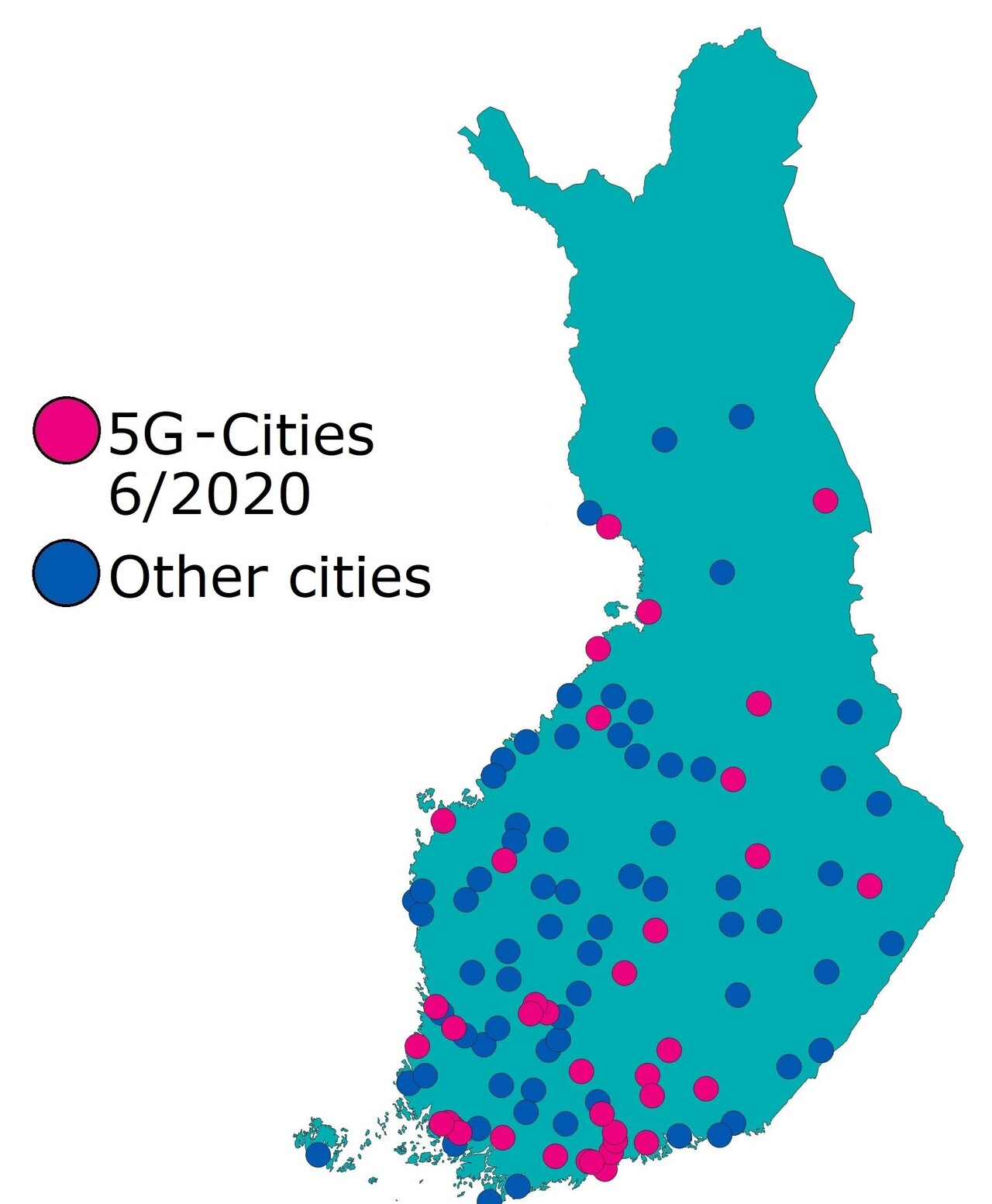Phone call durations increased in the spring in both the fixed telephone network and the mobile network as the majority of Finns transitioned to working remotely and studying at their own homes. Data transfer amounts and the speeds of broadband subscriptions also continued to increase, though this has been a persistent trend for a long time now, with no notable growth spikes.
The number of fixed network telephone subscriptions has long been falling, with the trend continuing as expected during the first half of 2020. Meanwhile, the number of mobile network subscriptions has remained stable for a long time. The numbers of phone calls have been decreasing steadily in both networks. Conversely, phone call minutes and thus the average duration of phone calls increased for the first time in years. In the mobile network, the total amount of time spent talking was over 8 million minutes, with the average duration of a single phone call being 5 minutes. It would seem, then, that people kept in contact by phone more than usual during the restrictions imposed in the spring.

The volume of data transferred in the mobile network increased during the first six months of 2020 by 15% compared to the previous six-month period, when the corresponding figure was 11%. Mobile data volumes have been growing rapidly for a long time. During the first half of the year, the average Finn consumed 44 gigabytes of data per month.

In spring 2020, fixed network broadband subscriptions continued to develop along the same lines as in previous years. The increase in subscription speeds is quite clearly linked to technological change. The share of fibre-optic subscriptions and cable TV network based cable modem subscriptions that enable fast broadband connections has increased from 62% in 2016 to 81%, with the total number of subscriptions now being 1.47 million. Over the same period, the share of subscriptions with download speeds of at least 100 Mbps has increased from 26% to 46%, to a total of 828,000 subscriptions. Subscriptions with the highest download speeds available to consumers, meaning over 300 Mbps, are still somewhat rare, although their relative growth is rapid.

According to statistics, mobile subscription data transfer speeds have also increased. Subscriptions offering download speeds of 100–300 Mbps, in particular, have been rapidly increasing in popularity since 2016, having increased their share from 18% to 48% of all subscriptions. Just under a fifth of subscriptions still have a maximum download speed of less than 10 Mbps. It should be noted that when talking about mobile network subscriptions, the indicated download speeds are maximum speeds in ideal conditions.

By the end of June 2020, there were just over 1,300 5G base stations in Finland. Base stations are being added to the network at a swift pace, as evident by the fact that their numbers have tripled since the end of the previous year. By the end of June 2020, 5G networks had been set up in 38 cities.

The 4G mobile network’s 100 Mbps service coverage extended to 18% of Finland’s land area by the end of June 2020. As such, coverage had increased by two percentage points in the last six months. In ideal conditions, download speeds of 100 Mbps were available to slightly over 93% of all households. In contrast, no significant changes occurred in 30 Mbps and 300 Mbps service coverage during the first six months of the year.*
100 Mbps mobile service coverage extended to 57% of Finnish main roads and highways, with the total coverage of all road classes being 41%. Rail network coverage was 58%.
The speed-category-specific coverages of the mobile network represent availability in ideal conditions. They do not account for network congestion or structural and geographical obstacles.

This information is based on data reported by telecommunications operators to Traficom every six months.
*4G 30 Mbps service coverage has been corrected in 2019 year-end statistics retroactively due to a change in the data provided by operators.
Additional information
Communications services statistics and time series (External link)
Statistical time series (External link)
Coverage of mobile broadband services by region and municipality (External link)
Elina Pallas, Senior Specialist, tel. +358 (0)295 390 126, elina.pallas(at)traficom.fi
Torsti Alhava, Communications Market Specialist, tel. +358 (0)295 390 534, torsti.alhava(at)traficom.fi, Twitter: @AlhavaTorsti (mobile use)